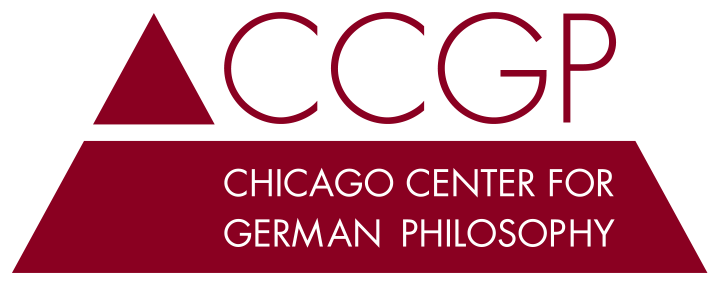Privacy, Expression, the Human Body, and Other Minds: Cavell, McDowell, and Stroud on Wittgenstein
An International Workshop at the University of KlagenfurtInstructors: James Conant (Chicago) and David Finkelstein (Chicago)
Organization: Volker A. Munz (Klagenfurt, ALWS)
Coordinator: Samuel J. Wheeler (Chicago)
For participants:
If you would like to access the readings for the workshop, please click on the link below. You will also find links for the syllabus, a list of participants, and recordings of the workshop. All of these materials are password protected. If you do not have the password, please contact the Coordinator.
Course Description
This year’s Klagenfurt Workshop is designed both to stand on its own and to complement the 15th Ludwig Wittgenstein Summer School (which will meet August 6-10, 2024 in Kirchberg). Both events will be led by Professors Conant and Finkelstein. Interested students and scholars are welcome to participate in either one without participating in the other. However, our hope is that those intrepid souls who sign up for both will profit from the manner in which they bear on each other.
The Kirchberg event will be devoted to Wittgenstein’s treatment of privacy, expression, and grammar in Philosophical Investigations §§243-308. In this year’s Klagenfurt Workshop, we’ll take a deep dive into the work of some of the most challenging, insightful, influential, and controversial commentators on that region of the text. In §§243-308, Wittgenstein investigates a cluster of closely related questions. Here are fifteen examples that are taken up by our commentators:
- Can another person ever really know what I am feeling?
- Can another person ever know what I am feeling as I do?
- Are (1) & (2) two ways of asking the same question?
- Is it possible for me to express my inner life in way that allows it to be knowable to another?
- Are (1) & (4) two independent questions or two sides of one question?
- What is an expression?
- What is the relation or connection between an expression and that which it expresses?
- Can the human body directly manifest or only indirectly indicate what’s going on in a subject’s mind?
- What difference does a capacity for language make to the form of a creature’s expressions?
- Is it possible for language to name or refer to sensations or inner states?
- In what sense, if any, are sensations private?
- In what sense, if any, do I have special or privileged access to my sensations?
- With what sort of entitlement do I speak when I say, “I am in pain”? – On the basis of evidence? An inward look? First-person authority?
- Could there be a private language – “a language which describes my inner experiences and which only I myself can understand”? If not, why—and in what sense—not?
- Are emotions and thoughts “private” in the same way, or in the same sense, as sensations? Do these topics require a separate or uniform philosophical treatment?
Unit 1 of the Workshop will focus on the work of John McDowell, especially on his reading of Wittgenstein’s (so-called) private language argument. Crucial to this reading is the question of whether the character of our sensory experience is merely “given” or informed by the capacity for language. In exploring McDowell’s treatment of this question, we will discuss the work of two other authors on whom he draws, John Cook and Wilfrid Sellars.
In Unit 2, we’ll move to an examination of Barry Stroud’s textually subtle reading of a number of the passages in the Investigations that have most preoccupied readers of the book since it was first published. These sections have given rise to what might be called a standard reading of Wittgenstein on privacy and the possibility of a private language. In considering Stroud’s criticisms of this reading, we’ll also discuss work by Bruce Goldberg and Elizabeth Anscombe.
At the center of Unit 3 will be Stanley Cavell’s treatment—in Part IV of The Claim of Reason— of Wittgenstein’s remarks concerning privacy, expression, and skepticism about the possibility of knowledge of other minds. Cavell’s reading of this region of the Investigations (especially the sections on private language and on the parable of the pictured pot) turns on a critical engagement with early influential commentators, George Pitcher, Alan Donagan, and John Cook, some of whose work we will examine briefly. We’ll close this unit by exploring Cavell’s concept of “The Outsider” along with its implications for understanding the roles of reciprocity and acknowledgment in our knowledge of other minds.
The final session of the workshop will be devoted to a retrospective overview of the material that we have covered and a consideration of how it bears on a proper understanding of Wittgenstein’s treatment, more generally, of psychological concepts throughout his later work.
For those who will be joining us in Kirchberg for the Ludwig Wittgenstein Summer School: Our plan for this year’s Wittgenstein Summer School is to carefully work through Philosophical Investigations §§243-308 while bearing in mind the various interpretative options canvassed in the Klagenfurt Wittgenstein Workshop.
Location:
University of Klagenfurt, Austria
Stiftungssaal
Dates:
August 1-3, 2024
Contact:
sjwheeler [at] uchicago.edu
